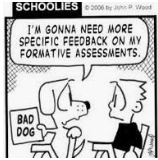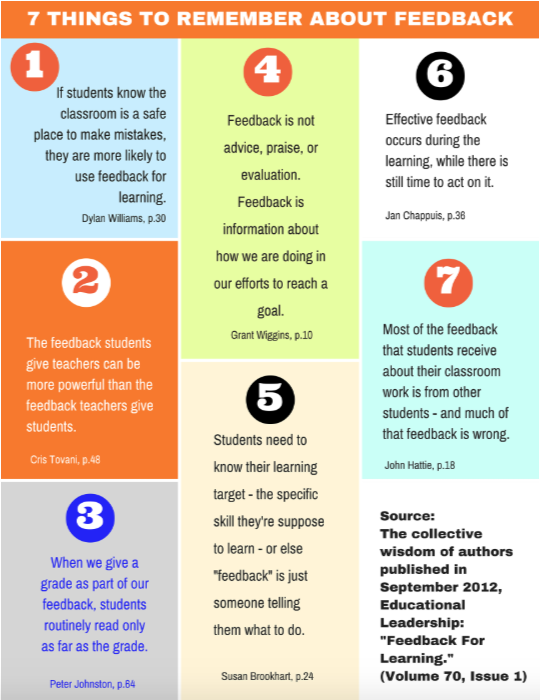Assessment Tools for Learning - Why Use Digital Tools to Assess?

"When teachers know their students well, they can build strong connections that lead to better learning. Knowing students’ interests, strengths, and weaknesses help teachers tailor learning experiences for their students. Formative assessment involves the teacher collecting information about what students know, don’t know, and want to learn." - Tony Vincent (Learning in Hand)
Formative assessments can range from simply asking a student to answer a question in class or complete an online quiz. No matter the process, the teacher measures student knowledge of the subject, obtains valuable data on the students and then uses the data to modify instruction.
The best formative assessment tools help students self-reflect and take control of their own learning. In this independent learning unit, we will be focusing on digital tools that give immediate feedback to the students. If your students have devices in the classroom there are numerous ways to assess your students from having them take a survey or a quiz to actively participating in a discussion forum.
Asking students to answer questions in class can take a lot of time and quite often the same students answer all the questions. Using a digital form of assessment, all students have to answer the same questions and everyone has a voice. The students will also get immediate or quick feedback so that they can adjust their learning.

Students can also take charge of their own learning. In many of the applications introduced in this unit, students can take an active part in helping create the questions and be engaged in online discussions.
Some of the applications have the built-in ability for the students to compete against each other which keeps them actively engaged while learning. The nice thing about formative assessments is that they don’t have to be graded! They should be used during learning and leave the summative assessment for the final product.
Let’s look at the wide array of quiz creation tools available that will grade student work and give immediate feedback.
If you have not made a copy of the Google Doc Checklist, please do so now and share it with your instructor.
Move on to Online Quiz Tools
Standards
Addressing the ISTE Standards For Educators
Learner
1a. Set professional learning goals to explore and apply pedagogical approaches made possible by technology and reflect on their effectiveness.
Leader
2b. Advocate for equitable access to educational technology, digital content and learning opportunities to meet the diverse needs of all students.
2c. Model for colleagues the identification, exploration, evaluation, curation and adoption of new digital resources and tools for learning.
Designer
5a. Use technology to create, adapt and personalize learning experiences that foster independent learning and accommodate learner differences and needs.
5b. Design authentic learning activities that align with content area standards and use digital tools and resources to maximize active deep learning.
5c. Explore and apply instructional design principles to create innovative digital learning environments that engage and support learning.
Facilitator
6a. Foster a culture where students take ownership of their learning goals and outcomes in both independent and group settings.
6b. Manage the use of technology and student learning strategies in digital platforms, virtual environments, hands-on maker spaces or in the field.
6d. Model and nurture creativity and creative expression to communicate ideas, knowledge or connections.
Analyst
7a. Provide alternative ways for students to demonstrate competency and reflect on their learning using technology.
7b. Use technology to design and implement a variety of formative and summative assessments that accommodate learner needs, provide timely feedback to students and inform instruction.
7c. Use assessment data to guide progress and communicate with students, parents and education stakeholders to build student self-direction.
Additional Resources
Formative Assessment Overview Video
17 Formative Digital Assessment Tools
75 Digital Tools Apps Teacher Use to Support Classroom Formative Assessment
Formative vs. Summative Assessments
https://www.aeseducation.com/blog/formative-vs.-summative-assessments-what-do-they-mean
In a nutshell, formative assessments are quizzes and tests that evaluate how someone is learning material throughout a course.
Summative assessments are quizzes and tests that evaluate how much someone has learned throughout a course.
In the classroom, that means formative assessments take place during a course and summative assessments are the final evaluations at the course’s end.
